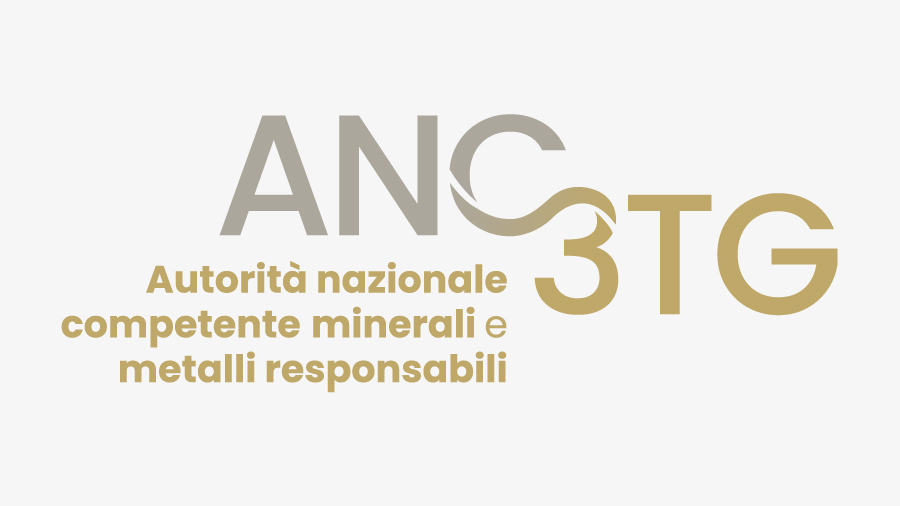The Italian Ministry of Economic Development - Directorate General for Industrial Policy, Innovation and Small and Medium-Sized Enterprises - has issued a Directorial Decree which defines the operating procedures for carrying out the ex post checks on Union importers who fall within the scope of the (EU) Regulation (EU) 2017/821 , which will be carried out by the National Competent Authority.
OECD tools - Due Diligence
The Organization for Economic Cooperation and Development (OECD) prepares and promotes information material and tools for the practical application of due diligence by companies:
The European operators are invited to refer to the following guides and practical manuals to apply the expected due of diligence required by the (EU) 2017/821 regulation:
- OECD web page dedicated to the Responsible Supply Chains of Minerals from Conflict-Affected and High-Risk Areas
- OECD (2018), OECD Due Diligence Guidance for Responsible Business Conduct
- OECD (2016), OECD Due Diligence Guidance for Responsible Supply Chains of Minerals from Conflict-Affected and High-Risk Areas: Third Edition, OECD Publishing
5 Step Framework An OECD practical guide to the application of due diligence at the 5 crucial levels of the business management (adopting a solid system in business management; identifying and assessing risks in the supply chain; managing risks; controlling practices on the due diligence adopted by refiners and foundries; publicly communicate the management system of the due diligence). Annex I p. 17 of the Guide to responsible sourcing from mineral supply chains
Alignment assessment of industry programmes with the OECD minerals guidance: OECD website proposes a methodology aiming at assessing the extent to which sector programs are aligned with the detailed recommendations of the OECD Guide.
Forum on Responsible Mineral Supply Chains: Each year, the OECD organizes a thematic forum dedicated to responsible sourcing in mineral supply chains.
RBC Global Forum: The event, an international reference on the subject, offers businesses, governments and civil society the opportunity to discuss the level of implementation of the OECD Guide on responsible business conduct at a global level.
The OECD Guidance is an International Standard around Responsible Mineral Supply Chains
EU tools - Due Diligence
The European Commission's website provides thematic platforms to support companies with all necessary tools to adopt the expected Due Diligence.
Please visit the DueDiligenceReady! This platform offers useful information for a correct economic and management model in compliance with the expectations of the regulation.
CAHRAS (Conflict-Affected and High-Risk Areas) is the portal of the European Commission that presents an indicative, non-exhaustive list of countries in conflict or at high risk. According to the unpredictability of the nature changes due to the geopolitical tensions, the list is subject to continuous updating.
Link to the website: https://www.cahraslist.net/ . (List of CAHRAS Updated on the 21 December 2021)
The enterprises remain responsible for establishing the situation at the supply points.
Interested parties are required to check the aforementioned lists with a certain frequency and compare such information with what can be found locally, through the company branches, the associations that operate locally, our Embassies and Consulates and any other source capable of indicating any changes allowing to establish the stability and security of the Country with which they trade.
The European Partnership for Responsible Minerals (EPRM) is a multi-stakeholder partnership. EPRM was established to create better social and economic conditions for mine workers and local mining communities. It does this by increasing the number of mines that adopt responsible mining practices in Conflict and High-Risk Areas (CAHRAs). The EPRM manages various activities to achieve these ambitious goals.
Link to the website:https://europeanpartnership-responsibleminerals.eu/
For companies and importers
Scope of the Regulation (EU) 2017/821
The regulation establishes the obligation to apply due diligence for importers who supply minerals and metals from conflict-affected and high-risk areas.
These are 23 minerals and metals listed in Annex I of the regulation whose annual imports exceed the established volume thresholds.
Link: Annex I amended by Commission Delegated Regulation (EU) 2020/1588 of 25 June 2020
Timing of application and implementation of the Regulation (EU) 2017/821
From January 1, 2021, the Due Diligence becomes mandatory for the import of minerals and metals indicated in Annex I of the regulation enters into force.
On January 1, 2022, the ex post checks carried out by the National Competent Authority will begin to verify the effective adoption of Due Diligence.
A first review of the EU regulation is expected in 2023, and includes an analysis of the impact of the regulation on the economic operators involved, including small and medium-sized enterprises.
Obligations deriving from the Regulation and companies potentially subject to ex-post checks
Due diligence obligations apply to EU importers as of January 1, 2021.
Pursuant to Article 11 of the regulation, the following importers are subject to ex post checks:
- importers falling within the scope of the Regulation
- importers participating in recognized due diligence schemes
- importers sourcing from responsible global smelters and refineries, which appear on the Commission list referred to in Article 9 (5) of the Regulation
Upstream companies
The supply chain of minerals from mining sites to smelters and refineries, such as mineral producers, commodity traders, smelters and refineries.
Downstream companies
The metal supply chain from the next stage through foundries and refineries to the final product, e.g. traders, component manufacturers, manufacturers.
Link: Conflict Minerals Regulation explained - Trade - European Commission (europa.eu)
 IT
IT  EN
EN 
